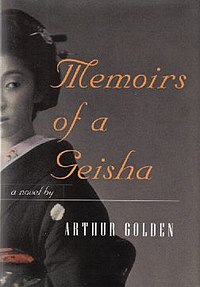It's one of the easiest pieces of advice in the world to tell an author to read great books. Want to learn how to be a better writer? Read great books! Read authors in your genre, read the bestsellers, read, read, read. I'm not going to tell you to do that. I want you to do something else. I want you to seek out bad writing. You need it. You just might not know it.
Bad Writing is Good
Have you ever come across a really old piece of your own writing? Exactly how long did you stare at it in bug-eyed horror before you quickly thrust it away from yourself and make an attempt to disassociate?
Mozart was a musical prodigy; he composed "Twinkle, Twinkle, Little Star" at age 5. Bobby Fischer was a chess prodigy; he competed in the Game of the Century at age 13. As far as I've ever known, there are no writing prodigies. Nobody sits down at age 11 and writes an epic novel that becomes an instant hit -- not even the likes of Mark Twain. Many authors, even the most well-known, received many rejections before getting themselves into a position to be known to you. So chances are pretty good that your earliest writing is fairly horrible in some area or another. My early writing is weak on spelling, grammar, punctuation, plot, character creation, character development...you get the point.
I want you to make an effort to read your own bad writing, and read it more than once. Reading good writing will make you a better writer. Reading bad writing can help make you great. I've learned a whole lot more from reading indie books to review than I ever did catching the odd copy error in my collection of James Patterson. I started thinking about that recently, and wondering about it.
Spotting mistakes in other people's bad writing, and in your own old bad writing, puts you in the right frame of mind to find your own. It's not always easy to be objective when you're editing that book you just worked on for the last 6 months. The project is still new and fresh, and you've got all sorts of feelings wrapped up in it. It's much easier to be objective when you stumble across your own terrible writing from years and years ago, projects you've long since discarded and stopped loving. That's when you're grimacing at your mistakes, and groaning out loud at your poor structure. But you might also see some stuff you're still doing the wrong way. You might notice your own bad patterns. And you might go back to that new project that you're romanticizing, and see it with brand-new eyes.
And all of that is going to help make you a whole lot better. So, go. Look for bad writing, and look for errors. Then go back to your current projects, and keep all those mistakes in mind while you're getting swept up in the story. You need bad writing to make yours better. Keep reading -- but don't be so quick to put the bad stuff down next time.


























